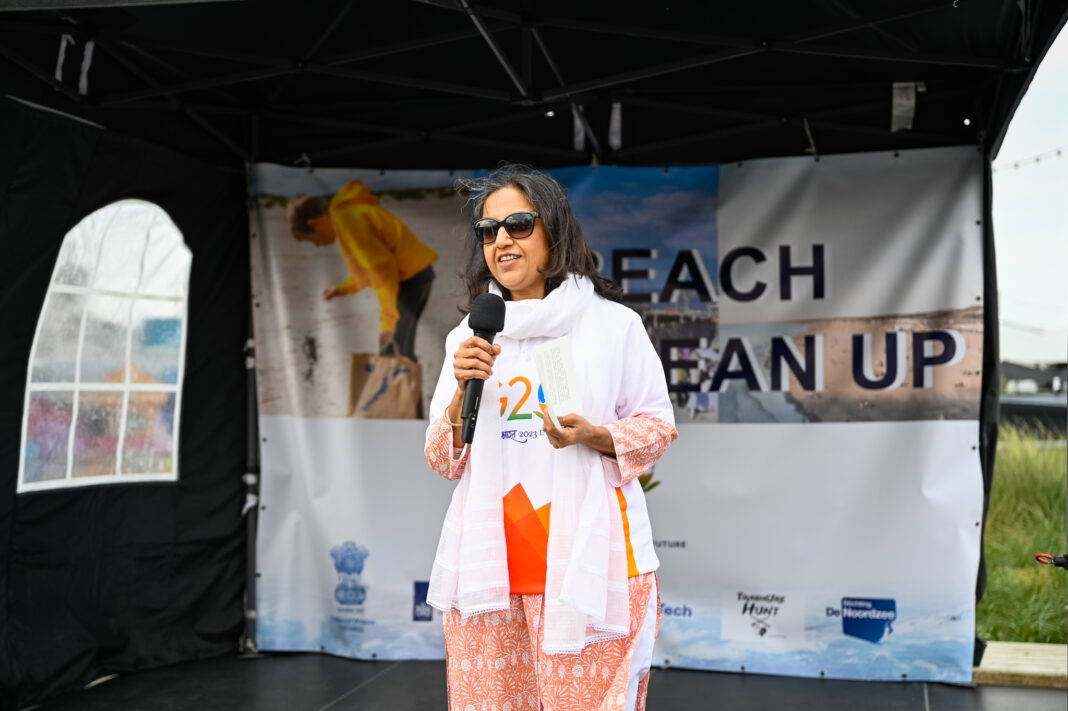By Swami Jonard
“Vasudhaiva Kutumbakam”, or “One Earth, One Family, One Future” is the phrase that India chose to define its presidency to the G20 in 2023. Embracing this spirit, the Embassy of India in the Netherlands gathered over 150 people to clean up the Scheveningen beach on May 12, 2023, as an effort to raise awareness on plastic pollution through a citizen-driven initiative.
As highlighted by H.E. Ambassador Reenat Sandhu, India’s 2023 presidency in the G20, where the Netherlands is a guest member along with 8 other countries, sets a strong focus on fighting marine litter, as reflected by many of the country’s recent initiatives throughout the world. Through numerous beach clean-up events across many countries, India aspires to be a leading actor in the efforts against climate change and pollution and set the example to lead the world to a more sustainable future.
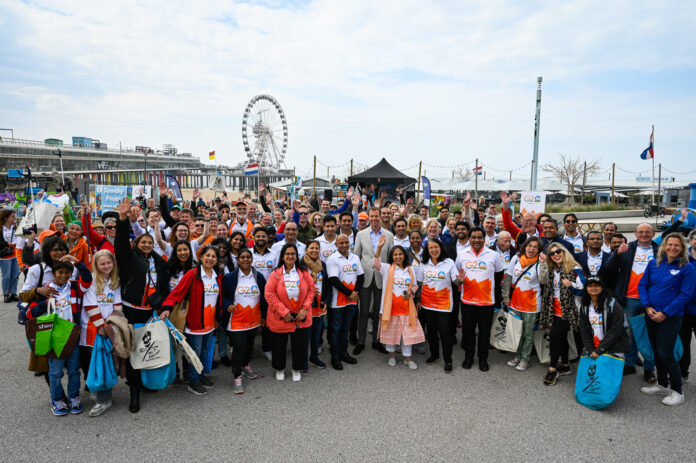
While being initiated by the Indian Embassy, this event is the result of a collaboration with civil society actors and public administrations of the Netherlands. The trash collection itself was organised by TrashUre Hunt, a Dutch NGO that organises beach clean-ups all over the Netherlands in the playful form of a treasure hunt. Another contributor was Stichting de Noordzee, an organisation dedicated to the protection of the North Sea from pollution and waste by producing knowledge and solutions to influence environmental policy. The city of the Hague supported the event as well, represented by Deputy Mayor Hilbert Bredemeijer who emphasised in his speech how India’s initiative follows the same path as the city’s efforts in fighting marine pollution.
Finally, the presence of the Ministry of Infrastructure and Water Management of the Netherlands showed the country’s efforts of cooperation with India on sustainability and environmental challenges. Overall, this inspiring array of actors fully embodied the different sides of the struggle against marine pollution, from scientific to institutional to civil action.
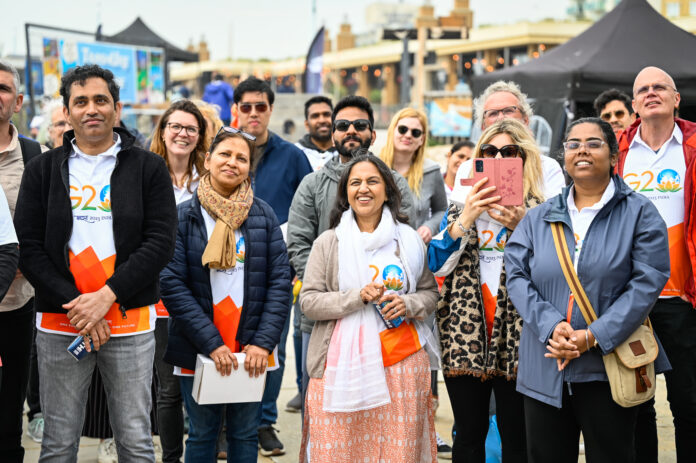
The event in question took place in a warm afternoon of mid-spring near the pier of the Scheveningen beach, an iconic location where many Dutch people spend their summer days, along with kite-surfers enjoying the strong winds of the North Sea. This highly touristic site is also a victim of its success, as the litter inevitably accumulates in the high season. This makes a perfect location to organise a collective clean-up action. Around three o’clock, the registered participants started accumulating near the meeting point, where they were welcomed by the organisers. The group included local citizens as well as diplomats from other countries and was brought together by the different organisations collaborating in the event.
Their first sight was a museum of marine waste built by TrashUre Hunt, where all different kinds of objects found on the beach and in the sea were categorised and put on display. Its purpose was both to inform the public about what happens to plastic let loose in the environment, and to inspire them to repurpose waste, by showcasing various sculptures created from it.
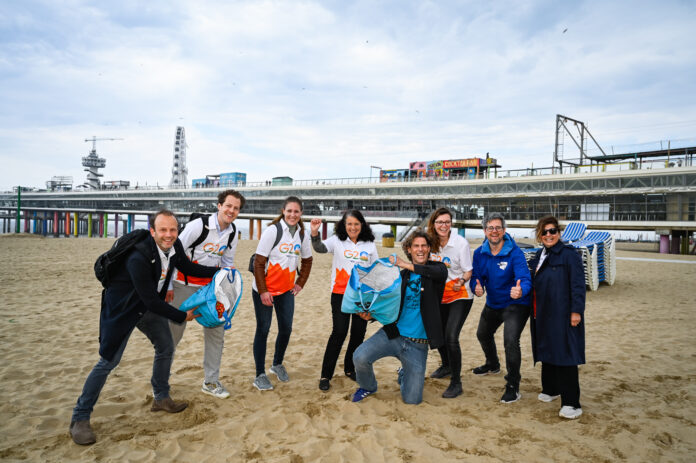
The attendees were first welcomed to get acquainted with each other and to meet the organisers, around South Indian coffee and millet biscuits offered to celebrate the international year of the grain. They were shortly after invited to assist speeches given by the representatives of the different organisations: Ambassador of India Ms. Reenat Sandu, Director General of the Ministry of Infrastructure Ms. Afke van Rijn, Deputy Mayor of The Hague Mr. Hilbert Bredemeijer, Director of Stichting de Noordzee Ms. Wytske Postma and Founder of TrashUre Hunt Mr. Ralph Groenheijde who explained the rules of the treasure hunt.
After being divided in teams, the participants were sent to several locations on the beach to collect as much trash as possible. The collection was organised as a playful competition where the teams would earn points by the weight of trash collected as well as the number of cigarette butts, which are known to be the most widespread type of marine litter. After some time of walking around, the collected waste was counted and weighed. The participants found out that they had gathered 240 kg of waste, including an impressive 5420 cigarette butts. A sizable result for a mere hour and a half of scavenging. Finally, the contributors were reminded that more than a competition, their achievement was a telling example of what can be accomplished through collective effort, and that joint citizen action is an indispensable force to fight for a sustainable world.
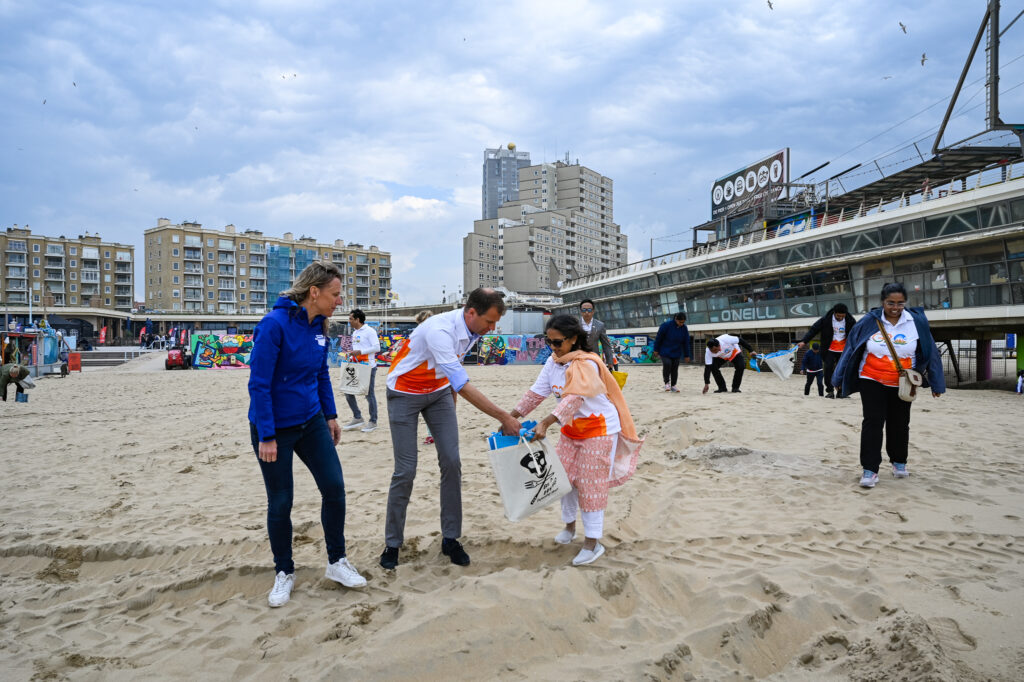
The beach clean-up was overall a great opportunity for everyone to learn that the strive for sustainability is a multifaceted challenge that requires initiatives from many different actors. The dignitaries that introduced the event made sure to show that these initiatives need to extend beyond civil awareness and reach all levels of society, economy and governance.
In her speech, the Ministry’s representative Ms. Afke van Rijn insisted on the importance of international cooperation in addressing Sustainable Development Goals (SDG) and congratulated the Indian Embassy for showing it through their initiative. With marine litter as a main focus of the G20 this year, she expressed that plastic pollution should be tackled not only by raising awareness, but mainly through regulations and institutional action all over the world. Such action should be aimed at targeting the problem at its source, and at transitioning to a circular economy that prevents the production of excessive waste. She finally mentioned the United Nations Treaty on Plastic Pollution, which is currently still a project, as an example of international regulations that would help tackle ocean waste coherently on a global scale.
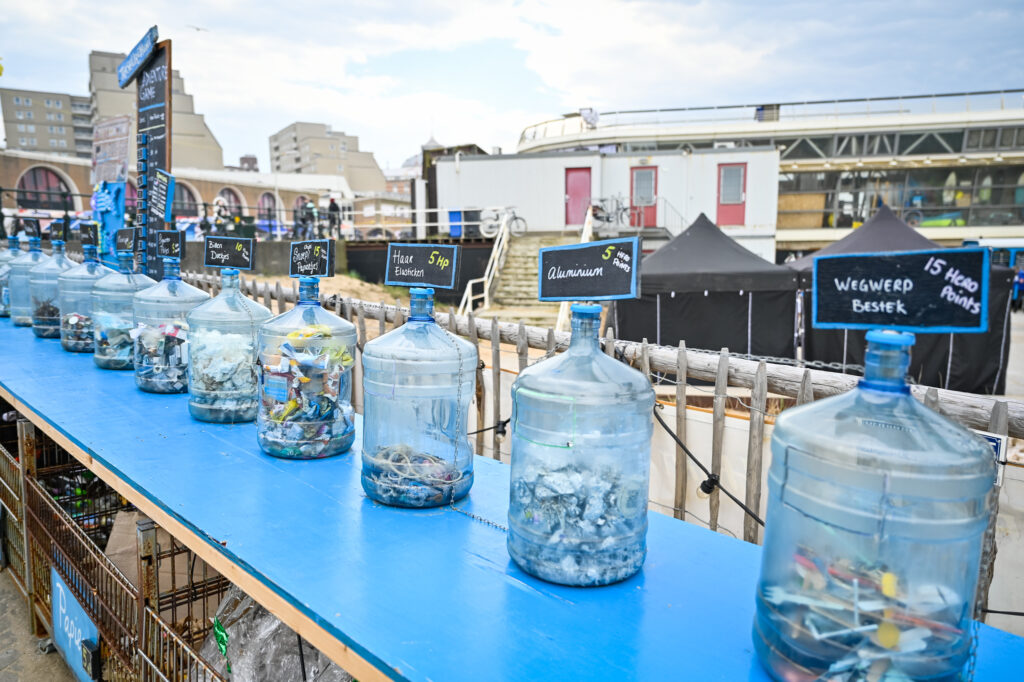
On the other side of this cooperation, Ambassador Sandhu’s speech situated the event in the larger context of the G20’s objectives under the Indian presidency. As shown by the slogan ‘One Earth, One Family, One Future’, this presidency focuses on the very contemporary SDGs, and the Ambassador highlighted the importance of promoting a sustainable lifestyle to achieve them. She emphasised the contribution that India can give on this aspect through Mission LiFE, or Lifestyle for Environment, a citizen movement meant to encourage a model of resilience in individuals and communities inherited from Indian tradition. According to her, an environmental initiative in the Netherlands has a lot of meaning since the country has a strong focus on sustainability as well as an active civil society to tackle it.
Moreover, the two countries have a strong bilateral relation and show a lot of potential for future cooperation on sustainable development. Finally, she showed how the Scheveningen beach clean-up event is the continuity of a large-scale effort of India to combat marine litter through the Mega Beach Clean-up, a large-scale event where 75 beaches in India were cleaned by volunteers in 75 days, as to mark the 75th anniversary of India’s independence.
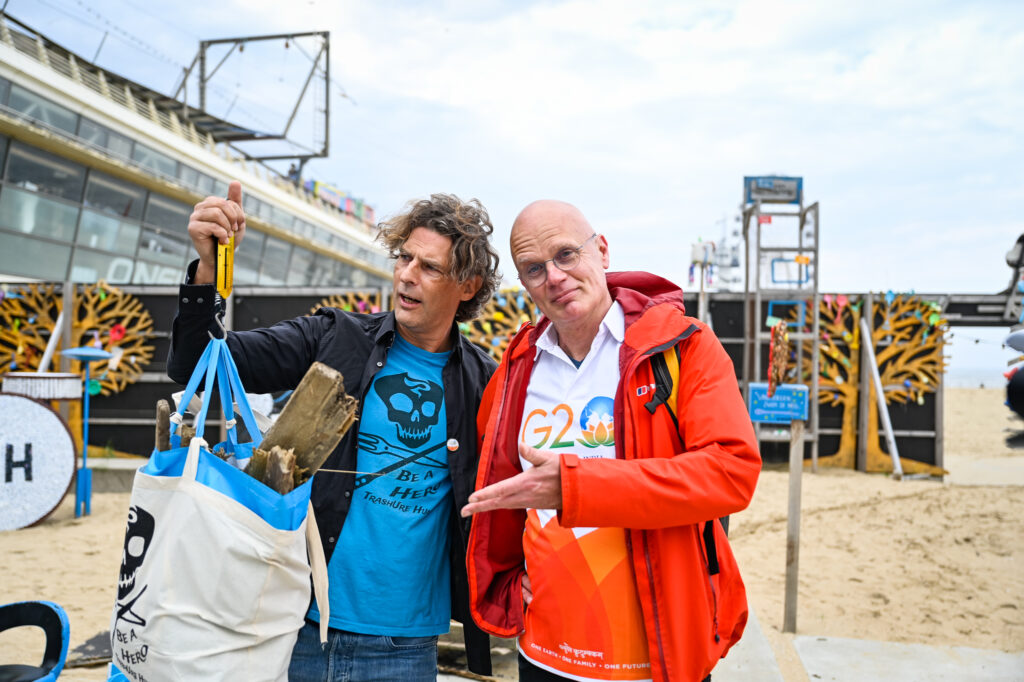
Beyond cleaning the seaside, India’s G20 presidency encompasses a much broader scope on the SDGs, including the preservation of oceans. A major event for environmental protection in the G20 was the Environment and Climate Sustainability Working Group meeting, held twice so far, which defined three areas of focus that the participating countries committed to act upon: land preservation, circular economy and resilient ocean management.
The latter theme focuses on the drive to promote a ‘Blue Economy’, an economic model in which the oceans’ resources are used sustainably, in a way that respects and contributes to their natural cycle and ensures their preservation. This model includes resource management, elimination of waste, preservation of biodiversity while promoting economic growth from the ocean’s resources.
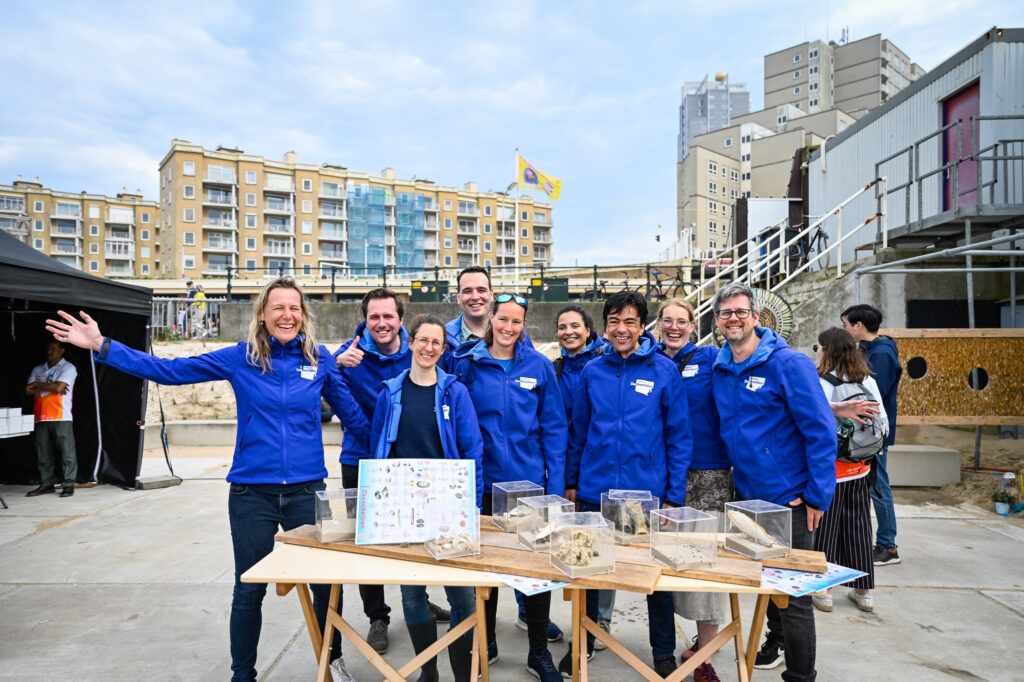
Regarding these goals, India strives for its presidency to be action-driven, as shown by the Mega Beach Clean-up and many other initiatives. Ocean and water management is also a theme that relates a lot to Indo-Dutch cooperation in the area of sustainability. With its long history of expertise in the field, the Netherlands has contributed a lot to so called ‘water diplomacy’ in India by sending Special Water Envoys leading technology transfer projects in areas such as freshwater supply and flood control.
This contribution takes place as well in the field of smart sustainable agriculture and has prospects of extending to renewable energy implementation. In this regard, the cooperation between the Netherlands and India for the SDGs has a bright future ahead of itself.
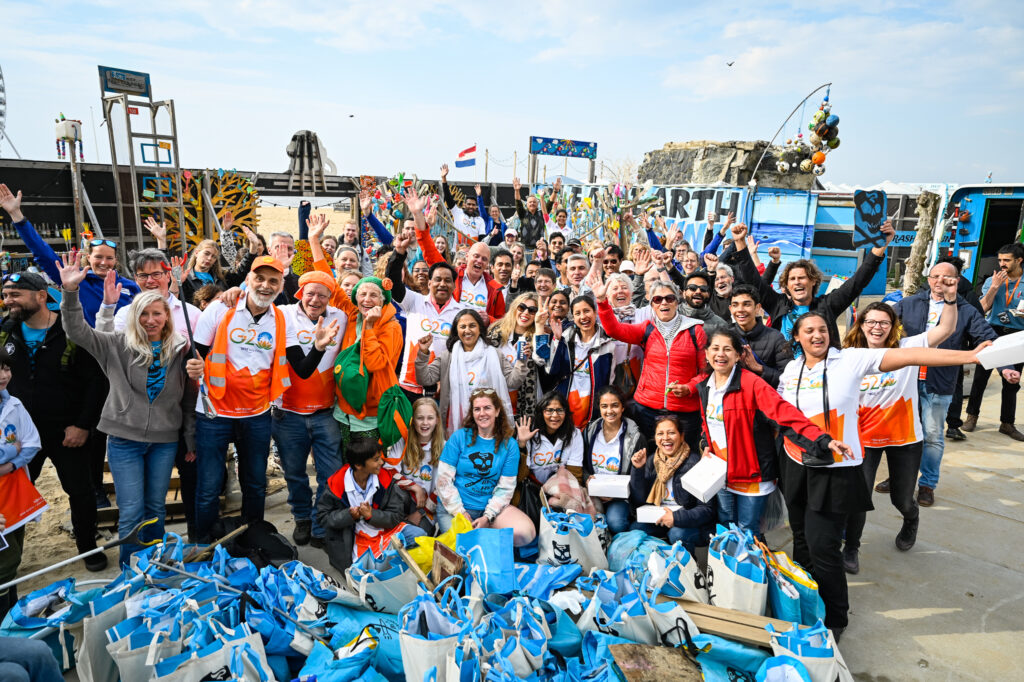
The overall message of the Scheveningen beach clean-up day is one of collaboration. The event has brought together citizens, government officials and civil society to not only raise awareness but also to mutually motivate and encourage each other’s contributions to environmental actions.
Returning to Ambassador Sandhu’s words on India’s G20 slogan, our shared future on our shared Earth depends on the collective action of different countries, individuals and institutions working together.
Photography courtesy of the Embassy of India in The Hague.
Sources:

